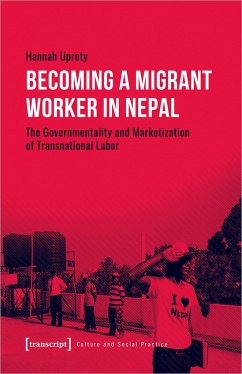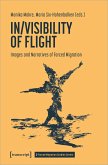High-profile events such as the 2022 FIFA World Cup in Qatar have made one thing abundantly clear: Much of today's economic growth would be unthinkable without the low-wage employment of migrant workers. But which cultural, economic, and political infrastructures in the »source« countries make these types of migration possible in the first place? Based on multi-sensory ethnographic research in Nepal, Hannah Uprety retraces the practices of recruitment and instruction that - step by step - transform Nepali labor into an internationally marketable commodity. In doing so, she uncovers a migration regime that effectively turns local men and women into »migrant workers« before they even leave the country.
Hinweis: Dieser Artikel kann nur an eine deutsche Lieferadresse ausgeliefert werden.
Hinweis: Dieser Artikel kann nur an eine deutsche Lieferadresse ausgeliefert werden.
»The book contributes importantly to a much needed holistic analysis that weaves the local, national, and international functioning of the labour market to create and sustain hierarchies based on ethnicity and nationality, and use these criteria to bend workers to submit, to the benefit of employers and recruitment agencies.«
Anita Ghimire, Pacific Affairs, 97/3 (2024) 20241128
Anita Ghimire, Pacific Affairs, 97/3 (2024) 20241128








